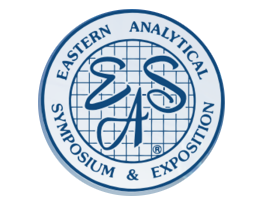One-Day Course
Wednesday, November 17; 8:30am – 5:00pm
Dr. Steven J. Lehotay, USDA Agricultural Research Service
COURSE DESCRIPTION
The “quick, easy, cheap, effective, rugged, and safe” (QuEChERS) sample preparation approach co-developed by the instructor in 2003 has become one of the most widely applicable techniques in the world for analysis of small molecules in a variety of sample types. Thousands of studies using QuEChERS have been published, and more than 25 vendors market QuEChERS products. The instructor has recently updated and expanded QuEChERS into an even more streamlined, high-throughput, mega-method concept known as QuEChERSER (more than QuEChERS, which also includes “efficient and robust”). In this 1-Day short course, the instructor will detail the start-to-finish QuEChERSER concept from rapid sample processing, simple extraction, automated cleanup, and robust analyses for a wide scope of GC- and LC- amenable analytes using MS-based detection, including efficient data processing and effective QA/QC procedures integrated routinely into the protocols. QuEChERSER is even more useful than QuEChERS for a broader range of applications, such as forensics, clinical analyses, and chemical residue monitoring in food and the environment.
WHO SHOULD ATTEND
Anyone interested in accurate, high-throughput, and robust analyses of small molecules in a variety of sample types and applications
TOPICS
- Sample Processing
- Sample Preparation
a. Extraction
b. Cleanup
c. Automation - Analysis using MS-Based Detection
a. Coupled with Flow-Injection
b. Coupled with UHPLC
c. Coupled with GC - Data Processing and QA/QC
ABOUT THE INSTRUCTOR
Dr. Steven J. Lehotay has been a Research Chemist with the USDA Agricultural Research Service since 1992. His scientific investigations and method development research have involved improvement in the analysis of pesticides, veterinary drugs, and other contaminants in food and environmental samples. His research has addressed all aspects of the analytical process, including sample processing, preparation, cleanup, separations, detection, screening, quantification, identification/confirmation, and data processing using many types of analytical techniques applied in novel and useful ways. He has authored >165 scientific publications plus >235 abstracts and given >135 talks in at least 25 countries on 6 continents. He has been honored with numerous awards, including AOAC International’s Wiley Award, and the Stanford c-score index places him among the top 0.19% of published analytical chemists thus far.

